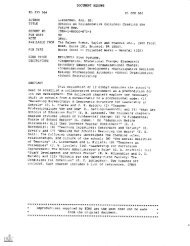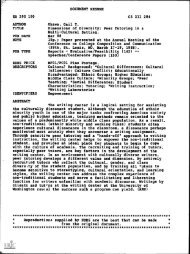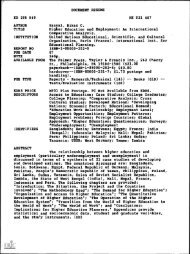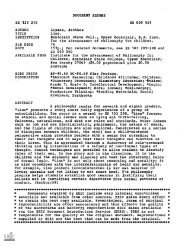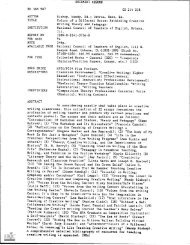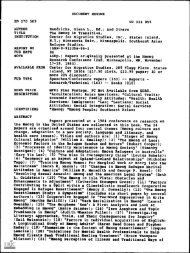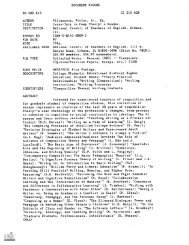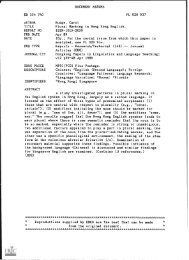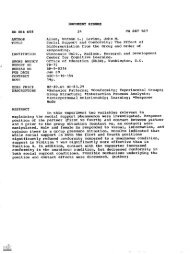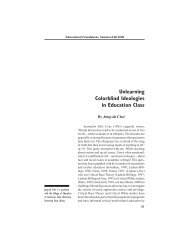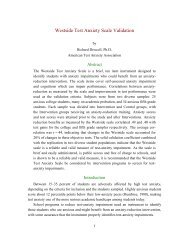Prison Literacy: Implications for Program and Assessment Policy.
Prison Literacy: Implications for Program and Assessment Policy.
Prison Literacy: Implications for Program and Assessment Policy.
You also want an ePaper? Increase the reach of your titles
YUMPU automatically turns print PDFs into web optimized ePapers that Google loves.
correctional agenda. To be rehabilitative, correctionaleducation must be responsive to the particular learningneeds of offenders, have content that focuses specificallyon changing pm-criminal values, beliefs, <strong>and</strong> attitudes,<strong>and</strong> integrate its activities with other correctionaltreatment initiatives.The majority of offenders enter our correctionalestablishments with poor academic skills. Too littleattention is given to why this is the case. In recent years,assessments of offenders have pointed to a high incidenceof learning difficulties. Offenders also seem to differmarkedly from non-offending populations in preferredlearning styles; they favor an intense, h<strong>and</strong>s-on approachrather than the more passive, visual methods practiced inour schools. These facts argue <strong>for</strong> a dsfferent teachingapproach in a correctional setting than that offered in thecommunity at large.The curriculum of most correctional educationprograms emphasizes basic skills to address illiteracy.Although mastery of these skills can serve as strongmotivation <strong>for</strong> the individual learner, the correlationbetween illiteracy <strong>and</strong> criminality cannot be consideredcausal. Research showing improved reintegration ofoffenders who have completed an Adult Basic Educationprogram is encouraging. The challenge <strong>for</strong> researchers isto identify which aspects of the program constitute thecontributing influence. However, research is unlikely topoint to any existing basic curriculum as a positiveinfluence....The development of a specific curriculum thatblends basic academic skills with material that stimulatessocial learning must remain a critical priority.Education in most correctional jurisdictions is a"st<strong>and</strong> alone" activity, with little interaction with otherareas of corrections. This isolation is rein<strong>for</strong>ced incorrectional systems that contract with local schooldistricts or private schools. Even in settings where teachersare employees, corrections-specific training is generallynot provided. Because of the lack of specialized services,prison teacbers are usually <strong>for</strong>ced to seek professionaldevelopment in the outside teaching community <strong>and</strong> aredisadvantaged in dealing with prison-specific problems.More recently, greater emphasis has been placed onco-ordinating the ef<strong>for</strong>ts of academic upgrading,2 TECHNICAL REPORT TR93-1 16



